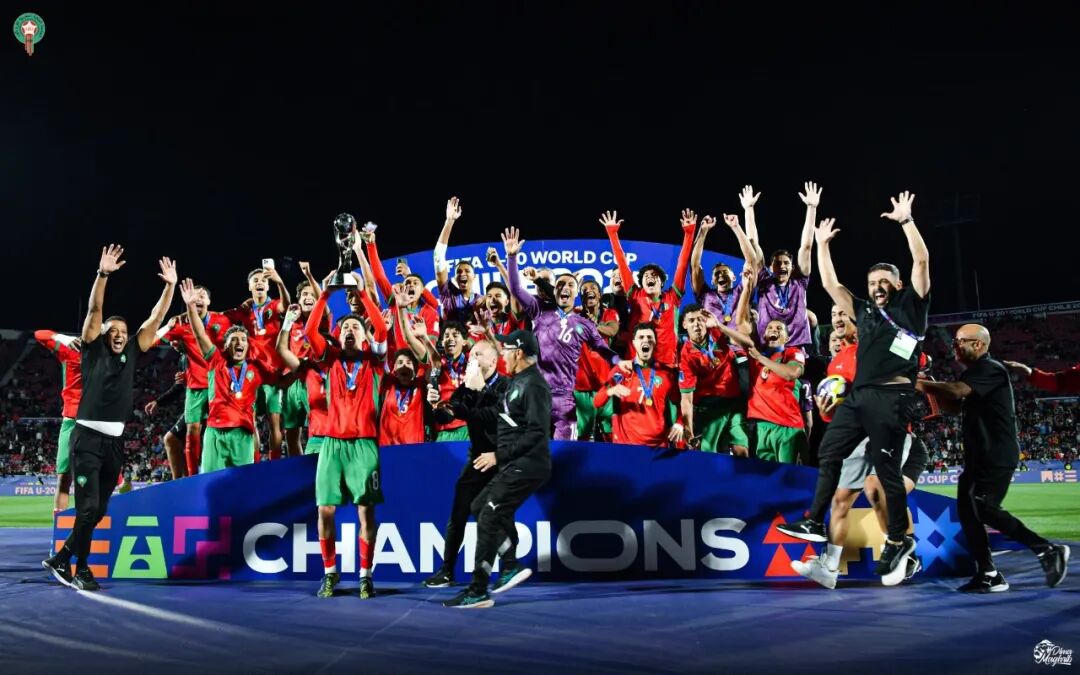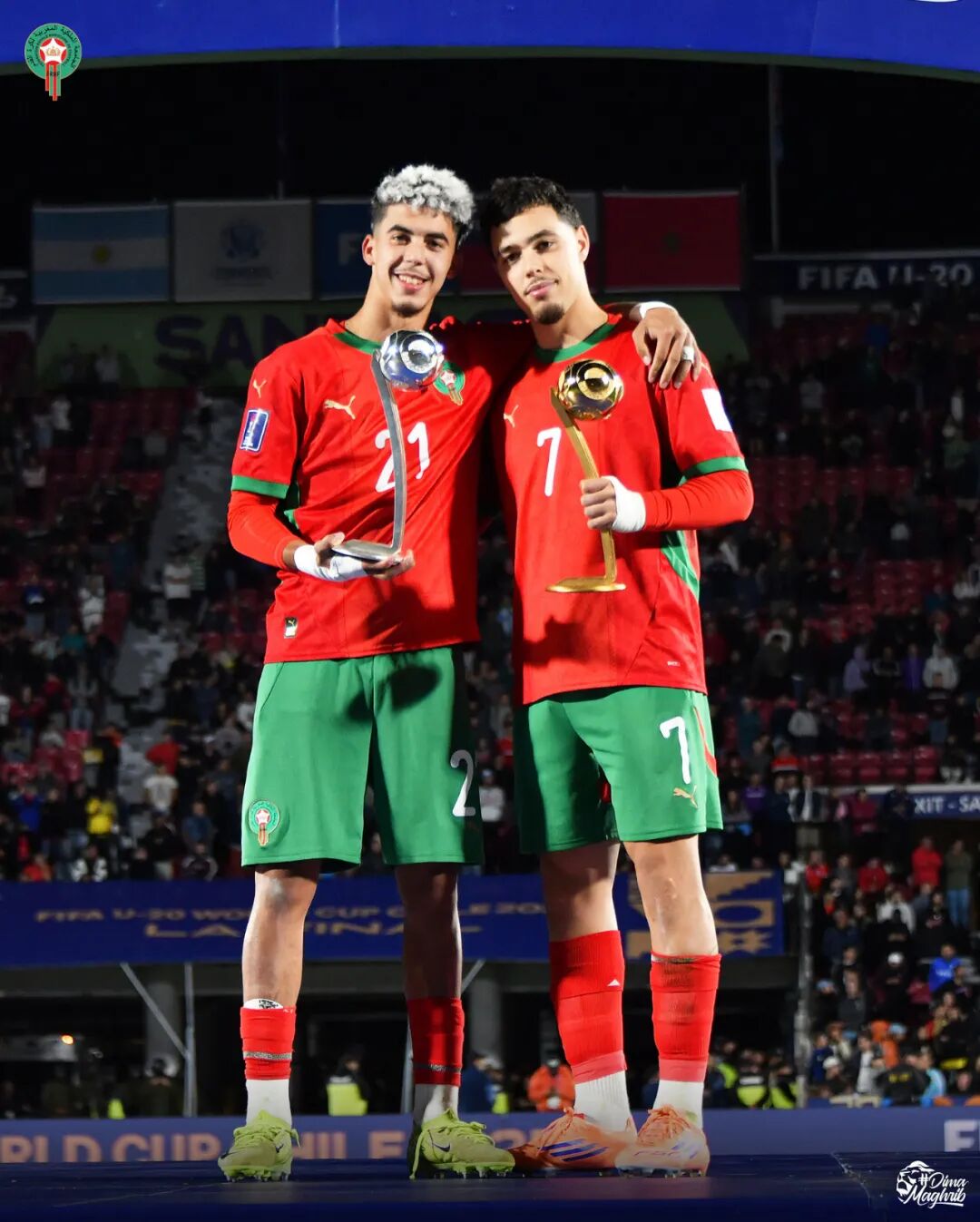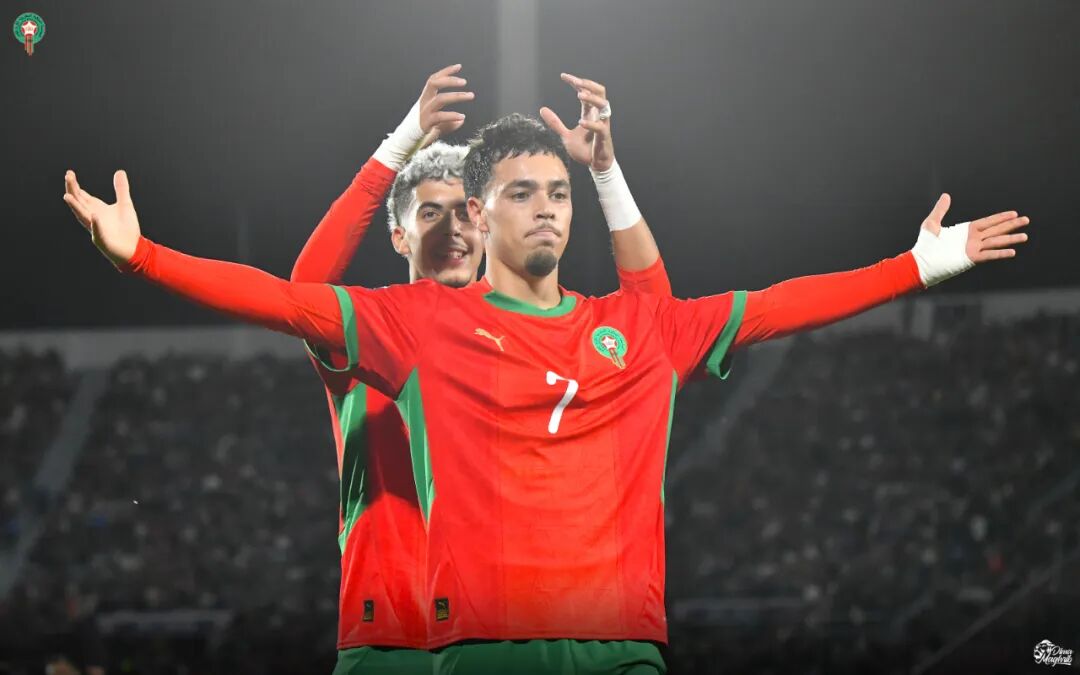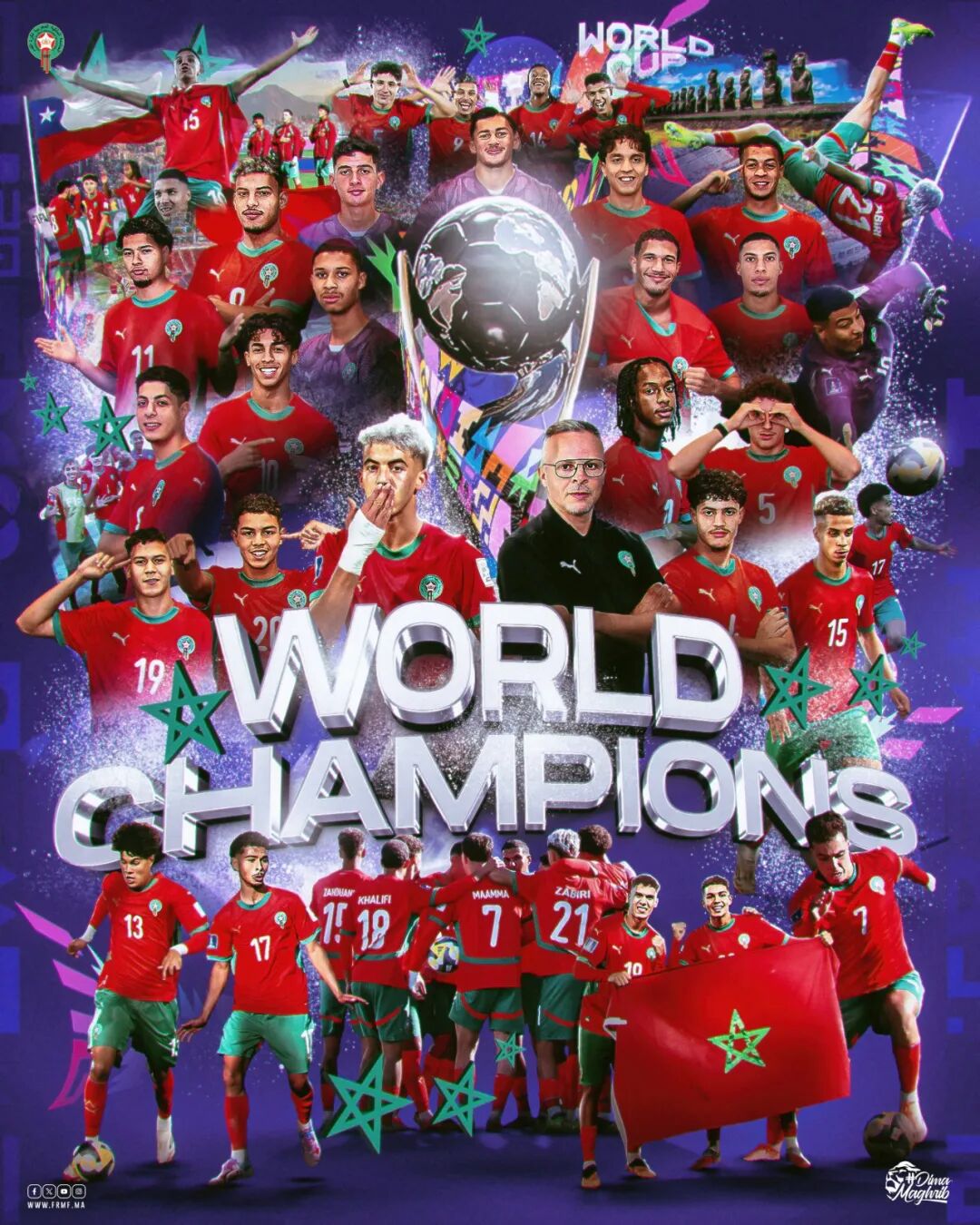Winning the U-20 World Cup for the first time, Morocco’s football achieves a “golden generation” through a dual approach


By Han Bing Defeating Argentina U20 2-0 to win the U-20 World Cup is Morocco’s most significant football accomplishment following their 2022 World Cup semifinal appearance and the men’s bronze medal at the 2024 Paris Olympics. Twenty years ago, Morocco reached the U-20 World Cup semifinals, and after three prior top-four finishes in world tournaments, the Moroccan U20 national team has now triumphed globally. This historic breakthrough in Moroccan football comes from the successful dual strategy of naturalization and intensive youth development.
Morocco became only the second African team after Ghana (2009) to win the U-20 World Cup. African teams have reached the final six times, with Nigeria (1989 and 2005) and Ghana (1993 and 2001) falling just short previously. This is also the first U-20 World Cup title for a North African and Arab team. Before this, Arab teams had only reached the final once (Qatar, 1981). The best U-20 World Cup result for a North African team was third place (Egypt, 2001), and Morocco’s previous best was fourth place in 2005. Over 48 years, Morocco qualified only four times but steadily improved: from group stage (1977), round of 16 (1997), semifinals (2005), to this year’s championship victory.
Besides the championship trophy, Morocco also secured the tournament’s Golden Ball (M’Maa) and Silver Ball (Zabiri). The top scorer title was shared (5 goals), with Zabiri narrowly missing the Bronze Boot due to fewer assists and 16 more minutes played than Michal (France). However, Zabiri’s two goals in the final and a brilliant free kick earned him the Silver Ball. Golden Ball winner M’Maa was even more outstanding, assisting and scoring against title favorites Spain and Brazil in the group stage, helping Morocco advance from a “group of death.” In the knockout rounds against South Korea, the USA, and Argentina in the final, his decisive assists made him the tournament’s assist leader, earning him the nickname “Moroccan CR7.”

This is only the second time since 2007 that the U-20 World Cup champion team has swept both the Golden and Silver Ball awards; back then, Agüero won both the Golden Ball and Golden Boot. Eighteen years later, Morocco’s team is slightly less dominant but still qualifies as Morocco’s “golden generation.” Jamal, who led the team to the U-20 World Cup semifinals 20 years ago, is now the technical director of the Moroccan Football Federation. In his view, the 2025 “Chile generation” of the Moroccan U20 team shares the same passion for football and determination to bring glory to the nation as the 2005 “Netherlands generation.”
Morocco’s football success stems from a development strategy that combines naturalization and deep youth training. Eight players from the “Netherlands generation” that finished fourth 20 years ago were naturalized. This year’s Moroccan U20 squad of 21 includes 11 naturalized players, with 9 born abroad and 2 who emigrated young and received football training overseas. Among the 11 starters, 6 are naturalized players: goalkeeper Benshaouy, defensive midfielder Biyal, and wingers M’Maa and Yasni are from France; center-back Bauve and right-back Mamar hail from Belgium. Additionally, key midfielder Hadad from Italy featured in the group stage.
However, domestic youth training also contributes significantly to the starting lineup, led by Silver Ball winner Zabiri, along with midfield captain Issac, defensive midfielder Khalifi, center-back Bahdi, and left-back Zawayani. Almost all of them come from Morocco’s Mohammed VI Football Academy, which gained fame overnight. The academy, costing around 14 million euros and covering 2.5 square kilometers, includes four FIFA-standard stadiums and four locker rooms, making it Africa’s largest and most modern national youth training center. In the 2023 U-17 World Cup, Morocco reached the quarterfinals, and four players from that squad experienced their first major international competition before winning this U-20 World Cup.

Due to club refusals to release players, the championship-winning Moroccan U20 team was not at full strength. Four key players from last year’s U20 African Cup—naturalized striker Azig, left winger captain Dahak, defensive midfielder Lalaou, and center-back Budaral—did not participate. Also absent were naturalized midfielder Boyar (Spain) from last year and striker Jones Abdelaou, naturalized this year from Norway’s youth team, highlighting the depth of Morocco’s U20 talent pool.
Morocco’s title win owes much to 49-year-old coach Ouabi, a Belgian-born Moroccan descendant. Starting as a youth coach at Belgian top club Anderlecht at 28, he took over Morocco’s U20 team in March 2022. Ouabi has developed many talents for both Belgium and Morocco, including Moroccan international Kanus, who performed well in the 2022 World Cup and 2024 Olympics. His coaching philosophy emphasizes tactical discipline and cultivating player values, especially responsibility, perseverance, and national pride. This year, Ouabi led the team to the U20 African Cup final for the first time in 28 years but finished runner-up. Five months later, he and Morocco’s “golden generation” lifted the world champion trophy.
For Moroccan football, this victory is the inevitable result of comprehensive progress in recent years. The Morocco U17 men’s team reached the U17 African Cup final twice consecutively and won the title this year, also qualifying twice for the U17 World Cup. The U20 men’s team reached the U20 African Cup final and won the U20 World Cup this year. The U23 men’s team won the 2023 U23 African Cup and took bronze at the 2024 Paris Olympics. In 2024, Morocco also claimed the African Nations Championship title. Combined with their 1976 African Cup of Nations win, Morocco’s men’s national team has completed the African championship grand slam. Undoubtedly, Morocco has become a new force in African football challenging European and American powers.



Wonderfulshortvideo
Things you really love to see


Neymar highlights neymar edit neymar lamine yamal celebration


Arsenal 1-0 chelsea havertz goal


Ahead of his 100th cap, Sir Keir Starmer had this message for Maro Itoje…


yamal goal yamal instagram yamal dribble barcelona 2-1 albacete yamal highlights yamal edit


casemiro goal casemiro assist casemiro 6 7 celebration


"Can I just start off by saying I want to congratulate Maro on 100 tests... He's a great bloke and a great player."








 Links
Links
 Contact
Contact
 App
App


